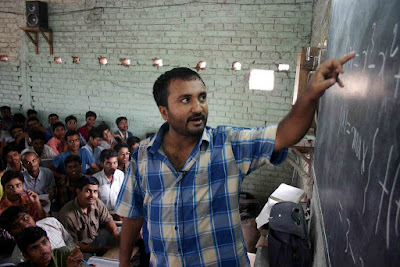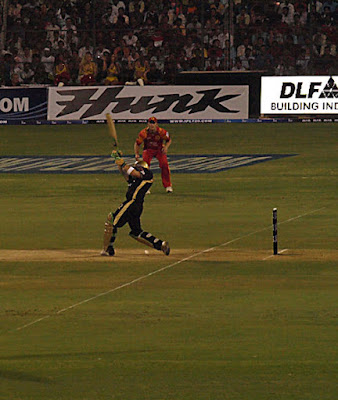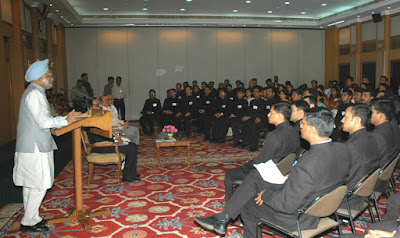Having been born, bred & buttered in West Bengal , I had grown up believing Bengali to be a superior language to other Indian languages. Which Indian language, for example, had a noble laureate ? Which language has popularised so many novelists? Which language had given pre-independence India’s first national anthem, bande mataram?(
i know,i know the anthem is in sanskrit but the poet was a bengali)etc. etc. Little did I know then that Bengali like Oriya, Maithili and Assameese were dialects that originated from the same source. Purvi Apabhramsa , a language that again came from Ardha Magadhi- a pali-based language at around sixth century. So , in essence, Bengali was no more superior to Oriya, Assameese or other Indian languages.
The interesting part of Bengali language , as often my elders would point out is the way we address strangers, elders, friends and acquaintances. Aapni, tumi & tui are different ways of using the second person pronoun while addressing someone either with reverence (aapni), distanced familiarity (tumi) or closeness/ condescension (tui). But in English , one has only “You” for a second person pronoun. That was a limitation of the English language, I was told.
Aapni-tumi-tui is somewhat similar to Erice Berne’s Transaction Analysis model of Parent-Adult-Child communication. Or for that matter, Freud’s Superego-Ego-Id theories of the subconscious.
The Bengali language thus gave its users (in their childhood) an inbuilt framework for doing a transaction analysis without even knowing the Berne’s framework. If two persons are communicating in Aapni & Tui , the transaction is between a parent & a child. Aapni –tumi is similarly a transaction between a parent & an adult. So on and so forth.
An offshoot of this Parent to Adult/Child transaction is the emergence of the salutation called “Dada”. Literally the word means “elder brother” . But its widespread use in everyday street-level transaction ( Dada, kota baje? Meaning , “Sir, Whats the time?” or Dada, Amherst stree-ta kothai? Meaning , “Sir, where is Amherst street?” etc) have obliterated the age factor between the asking and the asked. But it has retained the pedestal of knowledge , authority & power from which Dada has to answer those questions. Dada still remains the parent in Berne’s framework and generally like any parent he cannot do any wrong or abuse his authority. Whatever Dada says should be final and taken as gospel.
On the street, the person who poses the question to Dada , in a manner, submits himself before the authority of Dada without even transacting with him. The transaction is preordained to conclude as Parent to Child/Adult.
However, outside the street and in a more organised setting like a workplace , seniority of age (irrespective of hierarchical position ) presumes that a “da” ( a shortened form of Dada) is suffixed to the name of the senior individual. Sushil’da , Madan’da etc.
Madan’da , ak cup cha deben to (Madan’da, please make me a cup of tea) would be the bark that would go out from the office-manager to his peon, Madan, who is senior in age. Madan’da would make his tea and use other forms of body language to show reverence to his office-boss. He might bow a little or gently place the cup like a caring elder brother on the manager’s table knowing fully well that the authority for maintaining his job lies with the manager.
If the authority & age both converge then you have an easy situation . If the office manager is senior in age then he can bark, “Madan, tui taratri cha bana (Madan, hurry up with the tea) ”. Note the use of the condescending word “tui” instead of “aapni” (both meaning “you” though).
But as I said earlier, Dadas whether on street or in office can do no wrong and you should watch your mouth if you even dare criticise a “Dada”, publicly. Just not done. Give seniority the due respect!!
It was therefore quite a revelation when I went to work outside Kolkata for the first time in a leading software outfit. Everybody was calling everybody by first name. The sales executive to his boss and even the peon to the director. It was a clear case of adult to adult transactions everywhere. There was no “da” suffixed to any name. No presumptions that any Dada would know everything. Ample space to criticise a wrong decision of someone very senior to your age, publicly. And also ample scope for the junior colleague to display his matured ability. All these led to a greater transparency and productivity, I guessed.
Hence all Bengali Dadas (often also called “babus”) who also enjoy the authority of either power (Subhash’da, Buddha’da or Buddha’babu) or fame (Sourav “Dada” Ganguly, Barun’da alias Barun Sengupta) assume an automatic assignation of knowledge & ability without necessarily a commensurate effort or contribution from them. If people (specially bongs) around you start calling you “Dada” day in and day out then after a few months you start believing them and actually think that you cannot do any wrong. Your transaction with this set of people is always from the perspective of a parent (or adult-to-child) with you playing a dominant role. Arrogance, rigidity in thinking & loss of objectivity in analysis in such a situation are often natural by products.
An example in hand is that of Sourav Ganguly. Dada to all his sycophant fans in Bengal & outside , Sourav would have probably still wanted to be referred as “Prince of Kolkata”. But “Dada” stuck along propelled by the all-pervading national media.
Sourav “Dada” Ganguly, was a talented cricketer in his prime, who used style and substance to establish his place in the Indian team with a century against England at Lord (1996) . Sourav was suddenly elevated to the post of Captain in 2000 when the-then captain, Azhar, was removed after the match-fixing scandal. Till then he was known as Sourav. But after a one year stint as captain of the new-look team India, he began to be called “Dada”. And he never looked back till “Et tu Dravid” filled his place. Sourav’s career as a cricketer was shaped by two powerful individuals, without whom Sourav would not have been able to continue for a decade. The first one is his father Chandi Ganguly, who was a CAB administrator. He ensured using his position that Sourav at least got a look-in by the selectors . Then later in Dada’s playing days , he was superbly backed by Jagmohan Dalmiya, CAB & ICC president from Kolkata. Dalmiya ensured that Sourav was retained as Captain for 5 years in row inspite of his fall in performances.
(Jaggu’da lost his game later with Sharad Pawar but Sourav made a comeback thanks to “Somenath’da” and Sharad Pawar again.) The long stint as captain probably harmed Sourav more than anything else.
Absolute power corrupts absolutely! Specially for someone who relies on backing by powerful people to stay in the team .
Sourav was instrumental in losing the match for Kolkata Knight Riders yesterday because of his
faulty arrogant leadership and his inability to gauge his own strengths & limitations . Click the link in the last sentence to read more.
Probably , his failure last night as a leader is a sign for more ominous things to come.
Dadas also age.Dadas also fail miserably. But more often than not , they are blind to these failings . Dadas do not seem to know when to stop till reality comes caving in & sycophants start deserting. Years after, when Sourav will be completely away from the game , he will have time to reflect and maybe blame it all on the Dada culture and the curious structure of the Bengali language .
I do not expect Sourav to find fault with himself. Because after all, neither the Bengali language is going to vanish nor the Dada culture is going to disappear.








